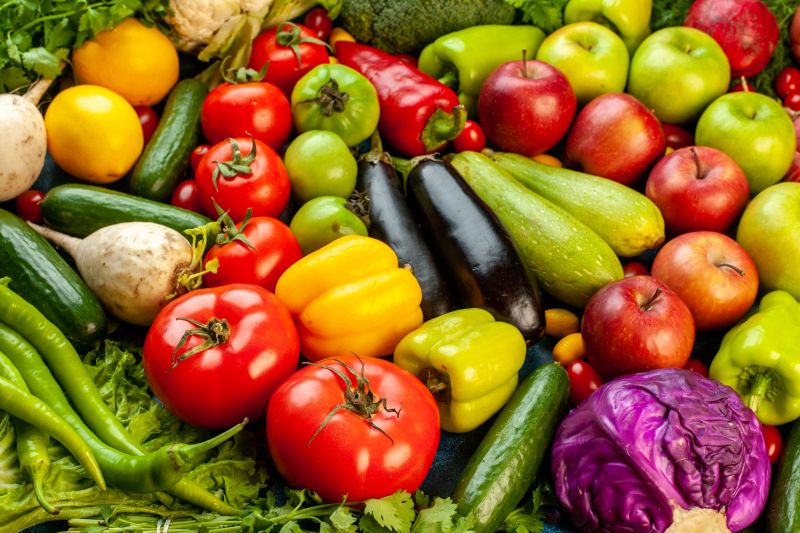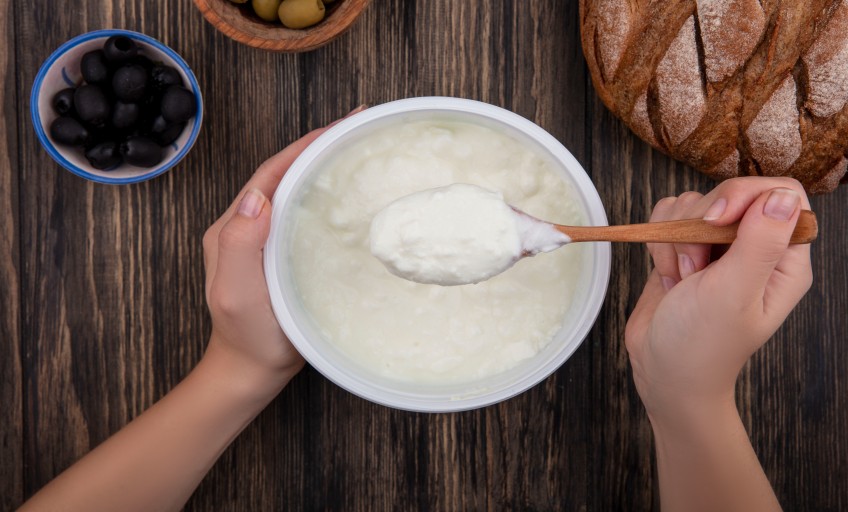Key Takeaways
- An anti-inflammatory diet includes eating foods that reduce inflammation and avoid those that trigger it.
- Anti-inflammatory foods include colorful fruits, vegetables, fatty fish, whole grains, herbs, and spices.
- Avoid refined sugars, processed foods, and foods with trans and saturated fats.
- Mediterranean, DASH and MIND diets are the three types of inflammatory diets.
- An anti-inflammatory diet may help with autoimmune diseases, IBD, allergies, and asthma.
Inflammation is a normal part of the body’s response to injury or infection. Eating less processed food, alcohol, and red meat and consuming more plant-based foods help manage inflammation.
What you need to know:
- What is an anti-inflammatory diet?
- Types of anti-inflammatory foods
- Foods to limit: Reducing inflammation triggers
- Types of anti-inflammatory diets
- What conditions can an anti-inflammatory diet help?
What is an anti-inflammatory diet?
An anti-inflammatory diet is a healthy eating pattern that helps reduce inflammation. It involves eating foods that fight inflammation and limiting foods that cause it. If you have a condition that causes chronic inflammation, it may ease some of your symptoms. An anti-inflammatory diet is generally considered safe, but you will want to work with your doctor to determine what is best for you.
Core principles of the anti-inflammatory diet
Anti-inflammatory diets typically do not consist of specific regimens but rather eating styles. The Mediterranean diet and the DASH diet are examples of anti-inflammatory diets. Some foods contain ingredients that can trigger or worsen inflammation, such as processed foods, trans fats, and alcohol. Meanwhile, other foods, such as fruits and vegetables, nuts, beans, and foods with omega-3 fatty acids, contain compounds – such as antioxidants – that may reduce it. Dietary antioxidants help remove free radicals from the body, the natural byproducts of bodily processes like metabolism, which can lead to cell damage. This damage increases the risk of inflammation and can contribute to various diseases. An anti-inflammatory diet favors foods rich in antioxidants over those that increase the production of free radicals. Omega-3 fatty acids, present in oily fish, may help reduce the levels of inflammatory proteins in the body.
Types of anti-inflammatory foods
An anti-inflammatory diet should combine various foods that reduce inflammation, are rich in nutrients, provide a range of antioxidants, and contain healthy fats.
Colorful fruits and vegetables

Colorful fruits and vegetables contain natural antioxidants and polyphenols. These are chemicals in plants that guard against inflammation. Research shows that vitamin K-rich leafy greens like spinach and kale, berries, and yellow and orange fruits and vegetables may be particularly protective.
Fatty fish and omega-3 fatty acids
Fatty fish like salmon, tuna, and sardines contain anti-inflammatory omega-3 fatty acids. To reduce inflammation and protect the heart, you can eat an 85 to 170 g serving of these fish two to four times a week. Other foods that contain omega-3 fatty acids include nuts and seeds like flaxseed, chia seeds, and walnuts.
Whole grains and legumes
The fiber in oatmeal, brown rice, whole wheat bread, and other whole grains may help with inflammation. Legumes such as lentils also help. Tree nuts like almonds, walnuts, and peanuts are rich in unsaturated fats, anti-inflammatory vitamins, and minerals.
Herbs and spices
People have used plants as medicine for thousands of years, and herbs and spices may reduce inflammation. Curcumin, the active compound in the spice turmeric, is the most anti-inflammatory. Some other examples are:
- Black pepper
- Cardamom
- Cinnamon
- Clove
- Cumin
- Fenugreek
- Fennel
- Garlic
- Ginger
- Onion
- Rosemary
Foods to limit: Reducing inflammation triggers
These include foods with few nutrients that are often ultra-processed, fried, and high in added sugar, salt, or saturated fat.
Refined sugars and processed foods

Sweets, cakes, cookies, and soda are not nutrient-dense and easy to overeat. This can lead to weight gain, high blood sugar, and high cholesterol – all related to inflammation. Avoid or limit food and drinks with added sugars. Also, avoid processed foods like canned vegetables, packaged snacks like chips and crackers, frozen dinners, and instant noodles.
Trans fats and saturated fats
Butter, whole milk, and cheese are high in saturated fat. Red meat includes foods like burgers and steaks. Along with processed meat like bacon, hot dogs, and sausage, these meats have a lot of pro-inflammatory saturated fat. Anything with trans fats often appears on packaged food labels as “partially hydrogenated oils.” A diet high in trans fats can raise LDL cholesterol and your chances of heart disease, stroke, and type 2 diabetes.
Types of anti-inflammatory diets
Many popular diets, such as the Mediterranean, DASH and MIND diets, already adhere to anti-inflammatory principles.
Mediterranean diet
This plan focuses on:
- Fruits and vegetables
- Whole grains
- Beans and legumes
- Nuts and seeds
- Olive oil as your primary fat source
- Fatty fish
- Low-fat or fat-free dairy products
- Seasoning with herbs and spices
And less of these:
- Added sugars in food and drinks
- Ultra-processed foods
- Refined carbohydrates (like white bread or flour tortillas)
- Tropical oils like coconut, palm kernel, and palm oils
- Saturated fats
- High-fat red or processed meats
DASH diet
The DASH (Dietary Approaches to Stop Hypertension) diet is similar to the Mediterranean diet but focuses more on limiting salt and including more low-fat dairy products. Apart from reducing inflammation, the DASH diet may also have additional benefits in inflammatory arthritis conditions, such as lowering uric acid levels, a risk factor for gout.
MIND diet
The MIND (Mediterranean-DASH Intervention for Neurodegenerative Delay) diet mixes parts of the Mediterranean with the DASH diet. It is considered a “brain-healthy” eating plan because it may guard against Alzheimer’s disease and dementia. The MIND diet emphasizes:
- Whole grains
- Vegetables, leafy greens in particular
- Nuts and beans
- Berries
- Poultry and fish
- Olive oil
At the same time, try to limit items such as:
- Pastries and other foods with added sugar
- Meat made from beef, pork, lamb
- Cheese and fried foods
- Butter or margarine
What conditions can an anti-inflammatory diet help?
There’s ongoing research in this area, but an anti-inflammatory diet may help with:
- Autoimmune diseases: Anti-inflammatory foods may lower specific inflammatory proteins associated with health conditions where the immune system attacks healthy tissue. Examples include rheumatoid arthritis, lupus, and psoriasis.
- Inflammatory bowel disease (IBD): An anti-inflammatory diet for ulcerative colitis and Crohn’s disease may ease symptoms of IBD.
- Cardiovascular disease: Heart disease, high blood pressure, obesity, and stroke are less common in people who eat plenty of anti-inflammatory foods.
- Allergies and asthma: Genes and environment play a big part in causing inflammation. For example, environmental factors can trigger inflammation, such as exposure to air pollution or chemicals in smoking. However, an anti-inflammatory diet may curb your immune response to allergens, lessening the severity of your symptoms.
- Alzheimer’s disease and dementia: Anti-inflammatory diets that lower your odds of heart disease, diabetes, and cancer may also protect the brain.
An anti-inflammatory diet may lower your odds of chronic inflammation and diseases. Along with a healthy diet, it is important to adopt healthy habits that include regular exercise, getting enough sleep, managing stress, and working with your healthcare provider to manage health conditions that may cause or worsen inflammation.
Stay tuned to the Activ Living Community. Keep up to date with the latest health tips and trends through expert videos, podcasts, articles, and much more on nutrition, fitness, mindfulness, and lifestyle conditions like Asthma, Blood Pressure, Cholesterol, and Diabetes. Activ Living ke saath sahi sehat ki shuruat ABHI karo.
You may also be interested in the following blogs:
- What Is Lymphoma? Know How To Prevent This Type Of Cancer
- Exercise During And After Chemotherapy: Tips For Cancer Patients
Popular Searches
How to lower blood pressure | Fruits good for liver | Unhealthy foods | Ragi Benefits | Basal Metabolic Rate | Acupressure points for High Blood Pressure | Ayurvedic medicine for blood pressure | How to control cholesterol at home | Homeopathy for Asthma | Biological Age | Home remedies for TB | Natural beta blockers | Negative effects of internet | Types of walking | Blood pressure calculator | Blood sugar calculator | BMI Calculator





 1800-270-7000
1800-270-7000






